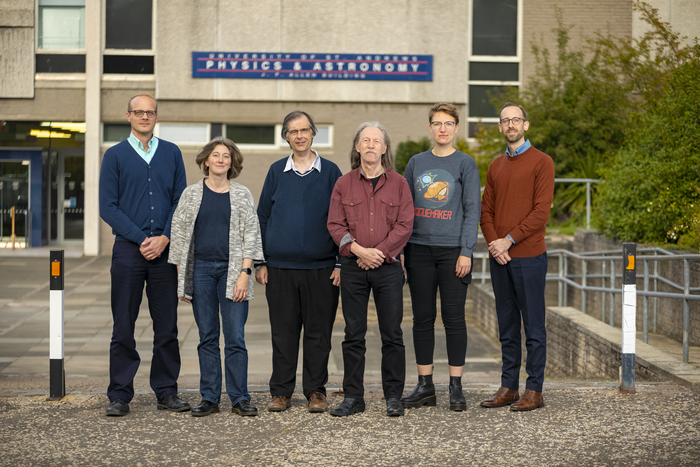What does humanity do when we discover we are not alone in the cosmos? A new international research hub at the University of St Andrews will coordinate global expertise to prepare humanity for such an event and how we should respond.

Credit: University of St Andrews Communications Office
What does humanity do when we discover we are not alone in the cosmos? A new international research hub at the University of St Andrews will coordinate global expertise to prepare humanity for such an event and how we should respond.
While we might never learn about the existence of life beyond Earth, or even about another intelligent civilisation, there’s a chance it could be detected sooner rather than later. But are we prepared?
The new SETI Post-Detection Hub, hosted by the Centre for Exoplanet Science and the Centre for Global Law and Governance of the University of St Andrews, will act as a coordinating centre for an international effort bringing together diverse expertise across both the sciences and the humanities for setting out impact assessments, protocols, procedures, and treaties designed to enable a responsible response.
Dr John Elliott, Honorary Research Fellow in the School of Computer Science of the University of St Andrews and coordinator of the Hub, said: “Science fiction is awash with explorations of the impact on human society following discovery of, and even encounters with, life or intelligence elsewhere.
“But we need to go beyond thinking about the impact on humanity. We need to coordinate our expert knowledge not only for assessing the evidence but also for considering the human social response, as our understanding progresses and what we know and what we don’t know is communicated. And the time to do this is now.
“Scanning signals of assumed extra-terrestrial origin for structures of language and attaching meaning is an elaborate and time-consuming process during which our knowledge will be advanced in many steps as we learn ‘Extra-Terrestrial’.”
The SETI Post-Detection Hub will close a substantial policy gap and will also consider responsible science communication in the social media era.
Limited attention has been given to the topic, a rare exception being the Royal Society holding a Scientific Discussion Meeting on ‘The detection of extra-terrestrial life and the consequences for science and society’ in 2010, after which the then-Director of the United Nations Office of Outer Space Affairs (UNOOSA), Mazlan Othman, had to debunk the emerging news story of her having been appointed as ‘alien ambassador’.
There are now procedures and entities established with the United Nations for dealing with the threat posed by impacts of asteroids on Earth, but there is nothing similar in place for picking up a radio signal from E.T.
Currently, the only existing agreed ‘contact’ protocols are those drawn up by the SETI community itself in 1989, which were last revised in 2010. Focusing entirely on general scientific conduct, they constitute non-enforceable aspirations and fall short of being useful for managing in practice the full process of searching, handling candidate evidence, confirmation of detections, post-detection analysis and interpretation, and potential response.
The SETI Post-Detection Hub for the first time provides a permanent ‘home’ for coordinating the development of a fully comprehensive framework, drawing together interested members of the SETI and wider academic communities as well as policy experts to work on topics ranging from message decipherment and data analytics to the development of regulatory protocols, space law, and societal impact strategies.
Dr Elliott said: “Will we ever get a message from E.T.? We don’t know. We also don’t know when this is going to happen. But we do know that we cannot afford to be ill prepared – scientifically, socially, and politically rudderless – for an event that could turn into reality as early as tomorrow and which we cannot afford to mismanage.”




